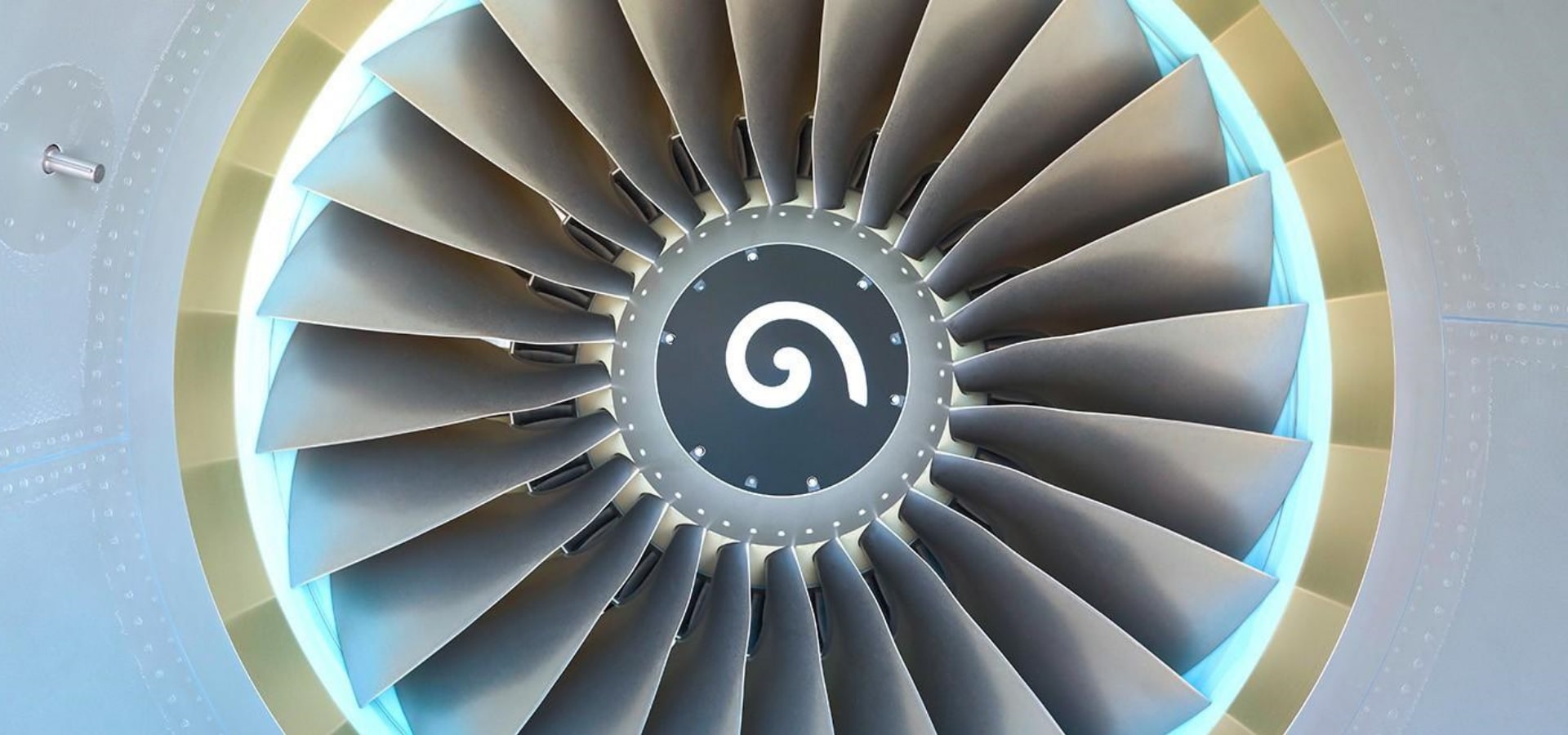Aerospace Propulsion
Accelerate engine programs to meet record demand while cutting costs.
What Are the Trends Changing the Aerospace Propulsion Landscape?
The history of aerospace propulsion is marked by significant milestones, from the Wright brothers' first powered flight to the development of supersonic jets and reusable rockets. Advances in materials, such as carbon fiber composites, have reduced the weight and increased the strength of propulsion systems. Innovations in engineering, such as additive manufacturing, have streamlined production processes and improved the performance of engines. Technological and environmental leaps are reshaping the industry. What are they and how will they affect your business and plans for development?
- Smart Sustainment
- End to End Quality
- Advanced Air Mobility
- Precision Manufacturing
One Platform for Digital MRO
Harness the power of data on a single integrated digital platform to optimize fleet maintenance, repair and overhaul (MRO) in Aerospace & Defense.
Smart Sustainment
How can propulsion manufacturers lead the next era of operations support?
As airlines streamline internal maintenance to cut costs, propulsion manufacturers have a unique opportunity to reclaim control over aftersales and operations support. This shift is redefining the business model—moving from transactional services to performance-based agreements like "Power-by-the-Hour," where OEMs gain operational insight while assuming greater responsibility for engine uptime.
To support this transformation, Dassault Systèmes offers the Virtual Twin Experience, enabling propulsion manufacturers to digitally connect engineering, in-service data, and maintenance activities. Real-time sensor data, predictive analytics, and intelligent parts management help optimize engine performance, reduce unplanned downtime, and extend time on wing.
By digitizing operations support, manufacturers can improve service responsiveness, reduce lifecycle costs, and continuously enhance product reliability in the field—while securing long-term value from aftermarket services.
Smart operations support isn’t just reactive—it’s a strategic pillar for growth, differentiation, and stronger customer partnerships.
Elevating Quality, Empowering Your Vision
Redefining aerospace and defense: Continuous quality improvement as the enabler for innovation.
Elevating Quality, Empowering Your Vision
How can propulsion manufacturers ensure engine quality across the lifecycle?
In the Aerospace & Defense propulsion sector, engine quality is mission-critical. With increasing performance demands and razor-thin delivery margins, quality failures can compromise customer trust, delay programs, and drive up costs. Yet, many suppliers still rely on disconnected systems that limit visibility and slow issue resolution.
Dassault Systèmes offers an End-to-End Quality Management approach tailored to propulsion manufacturers—integrating engineering, manufacturing, and operations in one digital environment. Advanced Product Quality Planning (APQP), Design and Process Failure Modes and Effects Analysis (DFMEA & PFMEA), and real-time shop floor feedback, teams gain full traceability and control across the entire engine production lifecycle.
Digital continuity enables proactive risk management, faster root cause analysis, and consistent execution—from design through final assembly and in-service support. Compliance becomes streamlined, and continuous improvement becomes part of the process.
Engine quality is no longer just a requirement—it’s a strategic advantage that powers performance, reliability, and long-term customer confidence.
Advanced Air Mobility Towards Sustainability
Advanced Air Mobility (AAM) promises to completely change the way we fly by making it faster, safer and more accessible.
Advanced Air Mobility
How can propulsion manufacturers lead in the Advanced Air Mobility revolution?
As the Advanced Air Mobility (AAM) market accelerates toward a projected $7.9B by 2030, propulsion manufacturers are at the forefront of reshaping air travel. With sustainability and innovation as core drivers, the industry is moving beyond conventional jet engines—toward hybrid-electric, hydrogen, and all-electric propulsion systems.
Meeting International Civil Aviation Organization (ICAO) emissions targets requires radical innovation: lighter components, advanced materials, cleaner fuels, and new engine architectures. From biofuels to hydrogen combustion and fully electric solutions, propulsion companies are redefining energy efficiency and environmental impact.
At Dassault Systèmes, we empower propulsion leaders with integrated digital tools for simulation-driven design, energy management, and model-based certification. This accelerates the development and validation of next-gen propulsion systems—reducing risk, improving performance, and ensuring compliance from concept to certification.
AAM is not just a new market—it's a new mindset. Propulsion innovation will define who leads in the future of sustainable flight.
Harness powers of agility in production
Your path to the future factory.
Precision Manufacturing
How can propulsion manufacturers scale precision without compromising performance?
With record backlogs and rising demand from both commercial and defense sectors, propulsion manufacturers must increase production rates—while maintaining the highest levels of quality, performance, and regulatory compliance. At the same time, they face growing pressure to reduce carbon footprint and build resilience against supply chain volatility.
To meet these demands, manufacturers are adopting advanced technologies such as additive manufacturing, carbon fiber composites, and automated inspection systems—enabling lightweight, high-performance components with micron-level precision. Emerging propulsion technologies like plasma and ion thrusters also require new approaches to design, materials, and manufacturing excellence.
Dassault Systèmes helps propulsion leaders connect engineering, manufacturing, and quality in a unified digital environment. This ensures design integrity, traceability, and agility across programs—reducing non-conformities and accelerating delivery.
Precision manufacturing isn’t just an operational goal—it’s a competitive advantage powering the future of propulsion.
The Future of Aerospace Propulsion
The future of aerospace propulsion lies in the continued pursuit of technological innovation and sustainability. Researchers and engineers are exploring advanced concepts such as supersonic and hypersonic propulsion, which could revolutionize air travel by drastically reducing flight times. Moreover, the integration of artificial intelligence and advanced analytics into propulsion systems promises to enhance performance, reliability, and maintenance efficiency.
Develop and Design Tomorrow’s Sustainable Propulsion Systems
Get knowledge on how to accelerate engine development programs from concept to manufacturing:
More on the Aerospace & Defense Value Chain
Dassault Systèmes has a proven track record as a catalyst and enabler of the world's leading industrial transformations. Discover more here!
